Can You Trade Forex on Robinhood? The Direct Answer & Your Real Options
Abstract:While you can't use the app you know to trade the market you're curious about, your journey as an investor and trader doesn't have to stop. Robinhood was an excellent first step, introducing you to the world of financial markets in a simple, accessible way. If you are serious about exploring forex, view it as a new skill to be acquired, much like learning a new language or a musical instrument. It requires patience, study, and practice. The path forward is clear: start with education, choose a properly regulated broker, and spend months on a demo account. By taking a disciplined, safety-first approach, you can explore the world's largest market responsibly.
The Short Answer: No
For those looking for a quick answer, here it is:
You cannot directly trade forex on Robinhood. The platform is not designed or regulated for trading currency pairs like EUR/USD or GBP/JPY.
This immediate “no” is important because it prevents new traders from searching for a feature that doesn't exist. Understanding why Robinhood made this choice helps set the stage for finding the right tools for the job. The reasons are not random; they are based on regulation, business strategy, and risk management.
Why Robinhood Skips Forex
- Regulatory Complexity: The world of forex is governed by a different set of rules and regulatory bodies than stocks. In the United States, equity brokers like Robinhood answer to the SEC and FINRA. Forex brokers, however, must be registered with the Commodity Futures Trading Commission (CFTC) and the National Futures Association (NFA). This is a completely separate, and arguably stricter, regulatory framework that requires a different compliance structure.
- Business Model Focus: Robinhood's mission has always been to “democratize finance for all” by simplifying access to U.S. stocks, ETFs, and more recently, cryptocurrencies. The platform's interface and entire user experience are built around this core mission of simplicity. Forex trading, with its complex terminology, 24-hour market, and high-leverage nature, runs counter to this streamlined model.
- Different Risk Profile: The primary risk mechanism in forex is leverage, which can be extremely high (up to 50:1 in the U.S.). This allows traders to control large positions with small amounts of capital, but it also means that accounts can be wiped out very quickly. Managing this level of risk for millions of retail users would present a significant challenge for Robinhood's existing infrastructure and risk management systems.
Robinhood vs. Forex Trading
To understand why you need a different platform for forex, it's crucial to grasp how fundamentally different it is from the assets you're used to trading on Robinhood. While both involve speculating on price movements, the underlying mechanics are worlds apart.
A Recap of Robinhood's Assets
On Robinhood, you have access to a familiar lineup of investment products:
- Stocks: Shares of ownership in public companies like Apple (AAPL) or Tesla (TSLA).
- ETFs (Exchange-Traded Funds): Baskets of assets, such as the S&P 500 (SPY), that trade like a single stock.
- Options: Contracts that give you the right, but not the obligation, to buy or sell an asset at a specific price.
- Cryptocurrencies: Digital assets like Bitcoin (BTC) and Ethereum (ETH).
Now, let's contrast this with the world of forex.
Core Asset Differences
The best way to see the distinction is a side-by-side comparison.
| Feature | Stock Trading (on Robinhood) | Forex Trading |
| Asset Traded | Shares of a public company, representing partial ownership. | Currency pairs (e.g., EUR/USD), speculating on the relative value of one currency against another. |
| Market Structure | Centralized exchanges like the NYSE or NASDAQ, with official opening and closing bells. | A decentralized, over-the-counter (OTC) market run by a global network of banks and financial institutions. |
| Trading Hours | Limited to standard market hours, typically 9:30 AM to 4:00 PM ET, Monday to Friday. | A seamless 24-hour market that runs from Sunday evening to Friday afternoon ET, following the sun from Sydney to New York. |
| Primary Drivers | Company performance, quarterly earnings reports, industry news, and overall stock market sentiment. | Macroeconomic data (inflation, GDP, unemployment), central bank interest rate decisions, and geopolitical events. |
| Leverage Used | Limited. A standard Robinhood margin account might offer 2:1 leverage on settled funds. | High leverage is standard. In the U.S., leverage up to 50:1 is available, meaning a small deposit can control a much larger position. |
This table highlights that moving from stocks to forex isn't just about trading a different ticker; it's about entering an entirely new ecosystem with different rules, hours, and primary risks.
A Forex Primer
So, what is this market you can't access on Robinhood? Forex, short for foreign exchange, is the global marketplace for exchanging national currencies. It is, by a massive margin, the largest and most liquid financial market in the world.
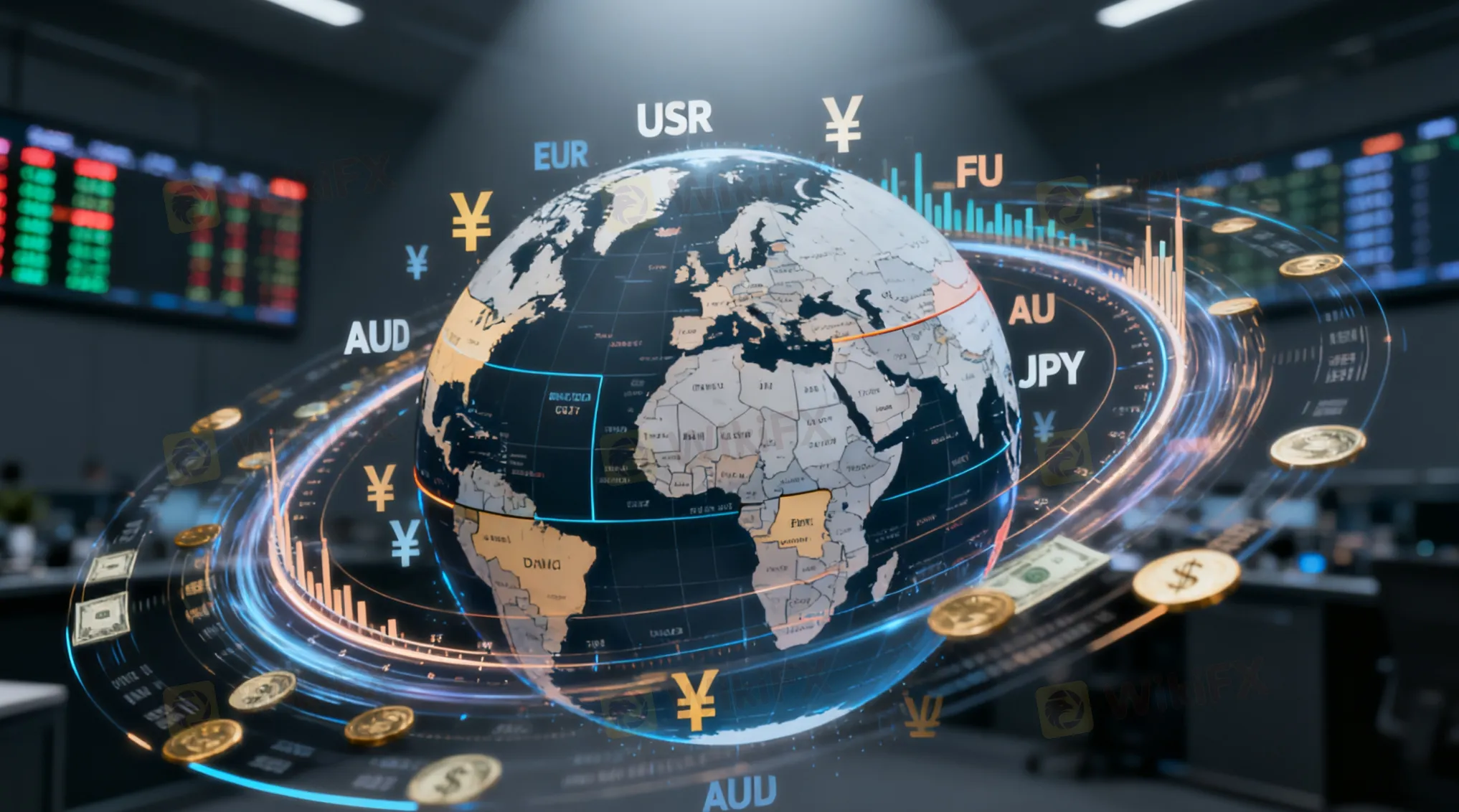
The World's Largest Market
To put its scale into perspective, the New York Stock Exchange trades an average of around $150 billion per day. The forex market, in contrast, trades a staggering $7.5 trillion per day, according to the 2022 Triennial Central Bank Survey from the Bank for International Settlements (BIS). This immense volume means there is almost always a buyer and a seller, providing unparalleled liquidity. You are not buying a “thing” like a stock; you are participating in a global flow of capital.
Understanding the Basics
For a Robinhood investor, some of the core terminology in forex will be new. Let's break down the essentials.
- Currency Pairs: Forex is always traded in pairs. When you trade EUR/USD, you are simultaneously buying the Euro and selling the U.S. Dollar. It's like a financial tug-of-war between two economies. If you believe the Eurozone economy will outperform the U.S. economy, you would “buy” EUR/USD. Pairs are categorized into three groups:
- Majors: The seven most traded pairs, all involving the U.S. Dollar (e.g., EUR/USD, USD/JPY, GBP/USD).
- Minors (or Crosses): Pairs that do not include the U.S. Dollar but feature other major currencies (e.g., EUR/GBP, GBP/JPY).
- Exotics: A major currency paired with one from an emerging economy (e.g., USD/TRY for U.S. Dollar vs. Turkish Lira).
- Pips (Price Interest Point): This is the smallest unit of measurement for a currency pair's price movement. For most pairs, it's the fourth decimal place. *For example, if the EUR/USD price moves from 1.0755 to 1.0756, it has moved up by one pip.* This is the equivalent of a stock price moving up by one cent. Traders often measure their profits and losses in pips.
- Lot Sizes: A “lot” refers to the size of your trade. Understanding this is key to risk management.
- Standard Lot: 100,000 units of the base currency. A one-pip move is worth $10.
- Mini Lot: 10,000 units. A one-pip move is worth $1.
- Micro Lot: 1,000 units. A one-pip move is worth $0.10.
New traders almost always start with micro or mini lots to manage risk while learning.
The Double-Edged Sword
Leverage is perhaps the most critical concept to understand. It's the tool that allows forex traders to control a large position with a relatively small amount of capital, but it's also the source of the greatest risk.
In the U.S., the maximum leverage for major currency pairs is 50:1. Here's what that means in practice:
- With a $1,000 deposit in your account, you can control a position worth $50,000 (50 x $1,000).
This amplifies potential profits significantly. If your $50,000 position moves in your favor by just 1%, you've made a $500 profit on your $1,000 deposit—a 50% return.
However, the sword cuts both ways. A 1% move *against* you results in a $500 loss. A 2% adverse move would result in a $1,000 loss, wiping out your entire deposit. This is why forex is considered much riskier than typical stock investing on a platform like Robinhood, where a 2% drop in a stock's price is a minor event.
Finding a Robinhood Alternative
Since Robinhood is off the table, your next step is to find a platform that is built for forex trading. This means choosing a dedicated forex broker. These brokers provide the software, tools, and access to liquidity necessary to participate in the currency market.
The Role of a Broker
A specialized forex broker offers several critical components that all-in-one apps like Robinhood do not:
- Trading Platforms: They provide access to industry-standard platforms like MetaTrader 4 (MT4) or MetaTrader 5 (MT5), which are packed with advanced charting tools, technical indicators, and the ability to run automated trading strategies.
- Direct Market Access: They connect you to the interbank market, where currencies are actually traded, ensuring you get competitive pricing.
- Comprehensive Tools: They offer economic calendars, news feeds, and analysis tools specifically for currency markets.
- 24-Hour Support: Because the market runs 24/5, good brokers offer support around the clock.
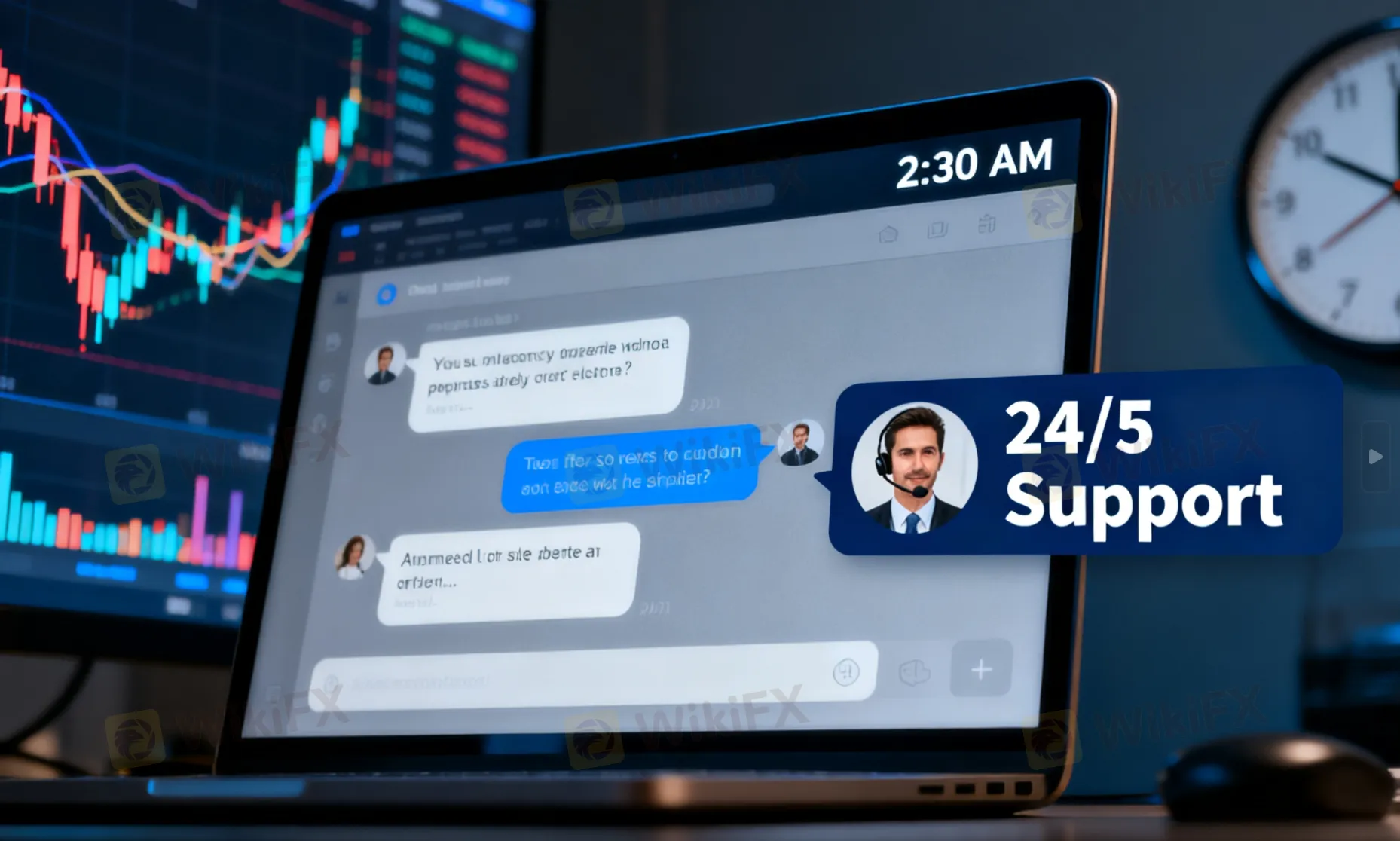
The Importance of Regulation
This is the most important consideration when choosing a broker. Because the forex market is decentralized, the integrity of your broker is your primary line of defense. Unregulated brokers can offer unrealistic promotions and may not operate ethically. Your funds are only as safe as the regulatory body overseeing your broker.
- United States: Any broker accepting U.S. clients must be registered with the Commodity Futures Trading Commission (CFTC) and be a member of the National Futures Association (NFA). This is non-negotiable. You can verify a broker's status on the NFA's website.
- United Kingdom: Look for regulation by the Financial Conduct Authority (FCA).
- Australia: Brokers should be regulated by the Australian Securities and Investments Commission (ASIC).
Always choose a broker regulated in a top-tier jurisdiction. The peace of mind is worth more than any flashy bonus an offshore broker might offer.
A Broker Selection Checklist
As you research alternatives, use this checklist to evaluate them.
- Regulation: Is the broker regulated by the NFA/CFTC for U.S. traders? This should be your first and most important check.
- Trading Platform: Do they offer a stable, user-friendly platform? MT4 and MT5 are the gold standard, but some proprietary platforms are also excellent. Test it with a demo account.
- Spreads and Fees: How much does it cost to trade? Look for brokers with competitive and transparent spreads (the difference between the buy and sell price) and low commissions.
- Customer Support: Is support available when the market is open (24/5)? Can you reach them easily via phone, chat, or email?
- Educational Resources: Does the broker provide high-quality webinars, articles, and tutorials to help you learn? This shows a commitment to client success.
- Demo Account: Can you open a free practice account with virtual money? This is essential for testing the platform and your strategies before risking real capital.
A Practical Transition Guide
Making the leap from Robinhood's friendly interface to a professional forex platform can feel intimidating. The screens are denser, the options are more numerous, and the terminology is new. Here's a practical, step-by-step guide to managing that transition.
Step 1: Embrace the Demo Account
On Robinhood, you likely started trading within minutes of funding your account. With forex, this is a recipe for disaster. Your first step is to open a demo account with a reputable broker.
Think of this as your flight simulator. A forex platform like MT4 is the cockpit of a Boeing 747, whereas Robinhood is the dashboard of a Tesla. Both get you moving, but one requires far more training and understanding. We will spend our first several weeks in the simulator, learning the controls without the risk of a real crash. The goal here isn't to make 'fake' money; it's to build muscle memory for the platform's functions and to practice risk management.
Step 2: Deconstruct the Interface
When you first open MT4 or a similar platform, you'll be met with a wall of information. Let's break it down.
- Robinhood's Simplicity: You see a single chart, a clear line graph, and big green “Buy” and red “Sell” buttons. It's designed for quick, simple transactions.
- The Forex Platform's Complexity: A typical forex platform is a multi-window dashboard. Focus on these key areas:
- Market Watch: This is the long list of currency pairs on the side with their live bid/ask prices. It's your menu of available instruments.
- Navigator: This window is your file explorer. It's where you manage different accounts (demo vs. live), apply technical indicators to your charts, and load automated trading programs (Expert Advisors).
- Terminal: This is your command center, usually at the bottom of the screen. It has tabs for everything: active trades, exposure, account history, news alerts, and most importantly, your account balance, equity, and margin levels. The “Margin Level %” is the most critical number to watch. If it drops to the broker's stop-out level (e.g., 50%), your trades will be automatically closed at a loss to protect the broker.
Step 3: Master New Order Types
You are familiar with market, limit, and stop orders on Robinhood. Forex trading elevates two of these to a place of supreme importance for risk management.
- Robinhood's Approach: You place a trade to enter a position. You might set a stop-loss order later if you think about it.
- The Forex Platform's Approach: The Stop Loss and Take Profit orders are not afterthoughts; they are integral parts of placing a trade. When you open a new order window, you will see fields to enter your entry price, your Stop Loss price (the point at which you automatically exit at a loss), and your Take Profit price (the point at which you automatically exit with a profit). Building the habit of setting both a Stop Loss and a Take Profit on every single trade is the most important discipline a new forex trader can learn.
Step 4: Shift Your Mindset
The culture around Robinhood can sometimes encourage a “buy and hope” or “meme stock” mentality. Forex trading is the polar opposite. It is a game of statistics, discipline, and probabilities.
You must shift from thinking in terms of “this stock could go to the moon” to “I will risk 20 pips to try and make 40 pips.” Success in forex is not about one massive win; it's about maintaining a positive risk-to-reward ratio over hundreds of trades. It requires a professional, emotionless approach to execution, where you define your risk on every trade and stick to your plan.
A Sober Look at Risk
All trading involves risk, but the nature and magnitude of that risk differ dramatically between trading stocks on Robinhood and trading forex with a dedicated broker. It's not enough to say “forex is risky”; you need to understand *why* and *how* it's risky.
Comparing Your Risk Exposure
This table breaks down the different types of risk you face in each environment.
| Risk Factor | Stock Trading on Robinhood | Forex Trading |
| Leverage Risk | Low. Margin is typically limited to 2:1. A 10% drop in a stock's price results in a 20% loss on margin, which is painful but rarely catastrophic for the whole account. | Extreme. With 50:1 leverage, a small 2% move against your position can liquidate your entire account balance. This is the single greatest risk and the primary reason most new forex traders fail. |
| Market Volatility | Event-Driven. Volatility is often high around earnings reports or major company news. Outside of that, many stocks can be relatively stable. A blue-chip stock going to zero is almost unheard of. | Constant. Currencies fluctuate 24 hours a day in response to a constant stream of global economic data, central bank announcements, and surprise geopolitical events. Prices can “gap” over the weekend, opening far from Friday's close. |
| Counterparty Risk | Very Low. Stock trades are cleared through centralized exchanges and clearinghouses. If Robinhood were to go bankrupt, your securities are protected by the SIPC up to $500,000. | Moderate to High. In an OTC market, you are trading against your broker or their liquidity providers. If your broker is unregulated and goes insolvent, your money is likely gone. This is why choosing a broker regulated by the NFA/CFTC is non-negotiable. SIPC does not apply to forex. |
| Information Risk | Manageable. While insider information exists, most critical data for retail investors is centralized through scheduled earnings reports, SEC filings, and investor relations updates. | Vastly Complex. To have a true edge, you need to monitor economic data from multiple countries, parse the nuanced language of central bankers, and understand the ripple effects of global politics. The information is decentralized, constant, and often overwhelming. |
The Final Verdict
So, after all this, is making the switch from Robinhood to forex the right move for you? The answer depends entirely on your willingness to embrace a steeper learning curve and a much higher level of personal discipline and risk management.
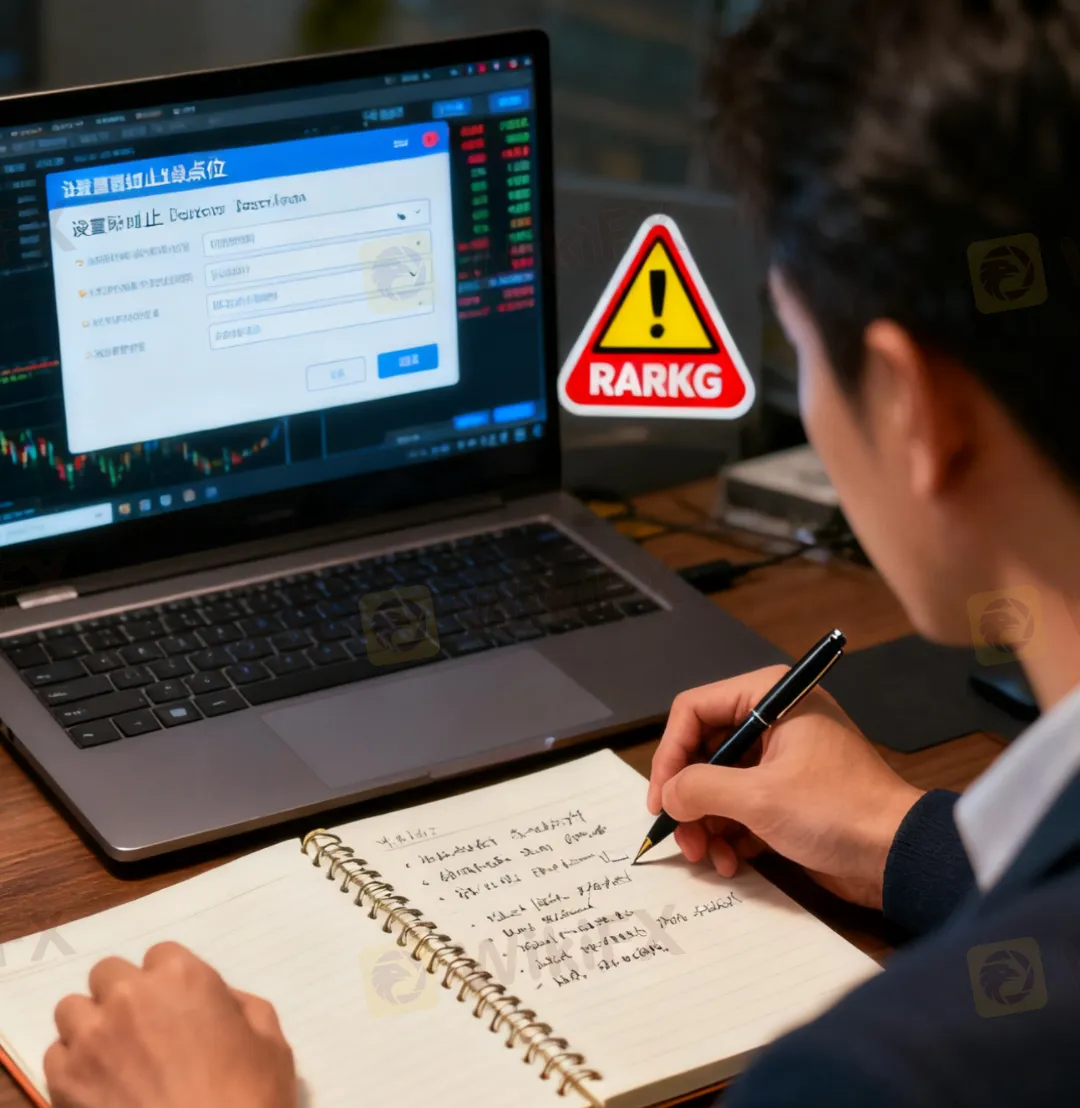
Key Takeaways
Let's summarize the journey from a simple question to a comprehensive answer.
- Robinhood is Not a Forex Platform: You cannot trade forex on Robinhood. Its business model, user experience, and regulatory status are all focused on stocks, ETFs, and crypto.
- Education is Not Optional: Forex is not intuitive. It demands that you learn a new vocabulary (pips, lots), new mechanics (leverage), and a new field of analysis (macroeconomics).
- Practice is Mandatory: Never risk real money until you have spent significant time on a demo account with a regulated broker. You must prove to yourself that you can operate the platform and execute a strategy without emotional errors.
- Risk Management is Everything: In a high-leverage environment, your long-term survival and success will depend more on how you manage your losses than how you pick your winners. Setting a Stop Loss on every trade is paramount.
Your Path Forward
While you can't use the app you know to trade the market you're curious about, your journey as an investor and trader doesn't have to stop. Robinhood was an excellent first step, introducing you to the world of financial markets in a simple, accessible way.
If you are serious about exploring forex, view it as a new skill to be acquired, much like learning a new language or a musical instrument. It requires patience, study, and practice. The path forward is clear: start with education, choose a properly regulated broker, and spend months on a demo account. By taking a disciplined, safety-first approach, you can explore the world's largest market responsibly.
Read more
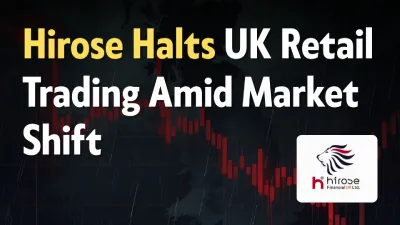
Hirose Halts UK Retail Trading Amid Market Shift
Hirose Financial UK suspends retail forex services, citing a shift toward institutional trading despite strong revenue growth.
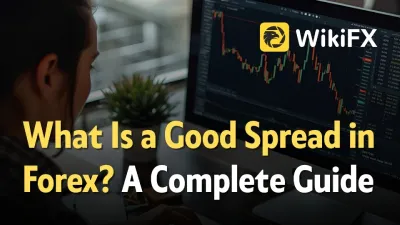
What Is a Good Spread in Forex? A Complete Guide
A good forex spread is typically under 1 pip on major pairs in liquid hours; learn definitions, benchmarks, costs, and how to pick low‑spread brokers.

Vietnam “Elites’ View” Event Highlights: Key Insights - Confidence, Discipline
In the current global financial environment full of uncertainty, Vietnamese investors urgently need answers: How to build confidence? How to find balance between risk and mindset? Which new tools can truly protect them? WikiFX launched the “Vietnam Elites’ View” event in its community, where 12 distinguished guests shared their in-depth insights from the perspectives of trading practice, education and training, investment research analysis, and platform operations.

WikiFX Golden Insight Award Unveils New Judging Panel
In recognition of the outstanding contributions made by forex professionals in fostering a robust industry ecosystem, WikiFX has launched the “Golden Insight Award” — uniting brokers, IBs, KOLs, service providers, and various industry professionals to jointly drive transparency, security, and sustainable development in the global forex industry.
WikiFX Broker
Latest News
Behind the Licences: Is Pepperstone Really Safe for Malaysians?
Promised Recession... So Where Is It?
Happy Mid-Autumn Festival from WikiFX to YOU!
Rate Calc

